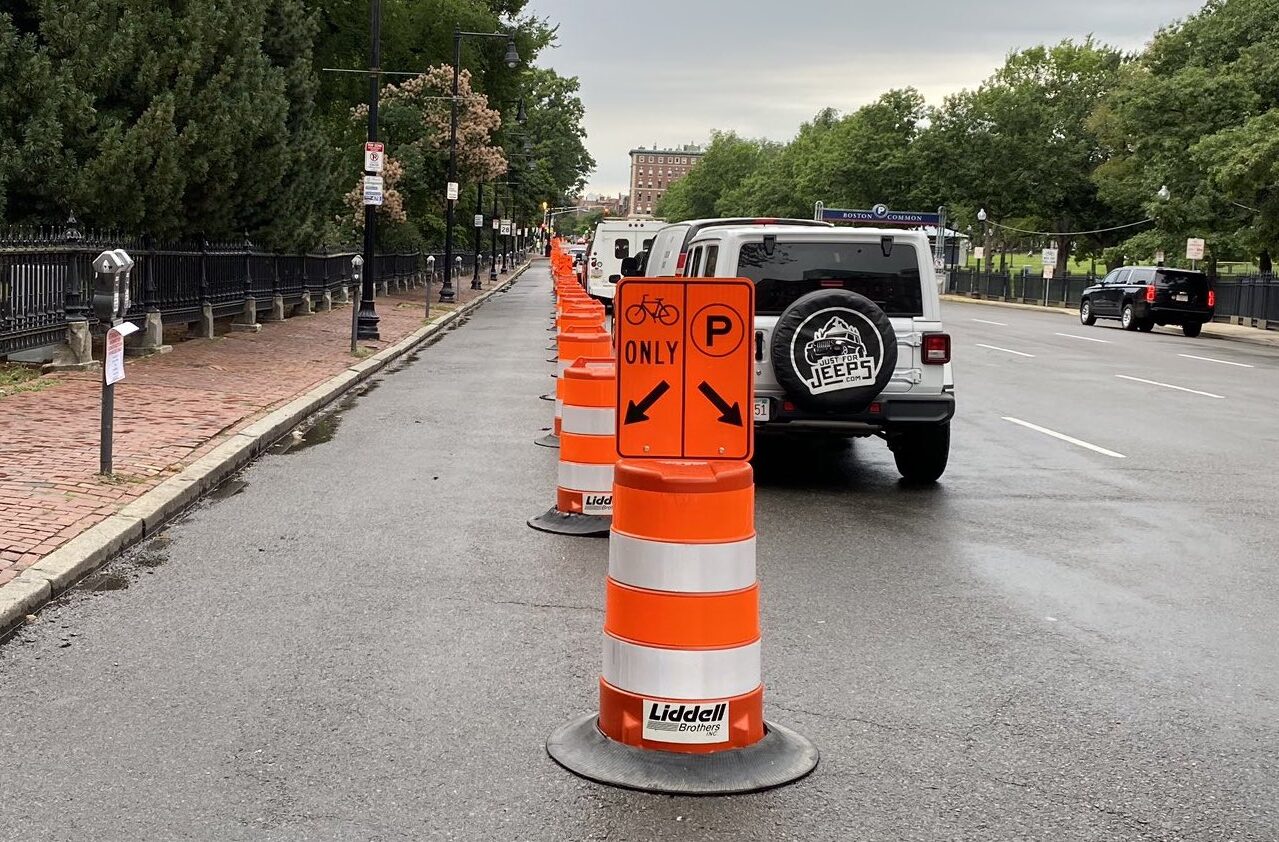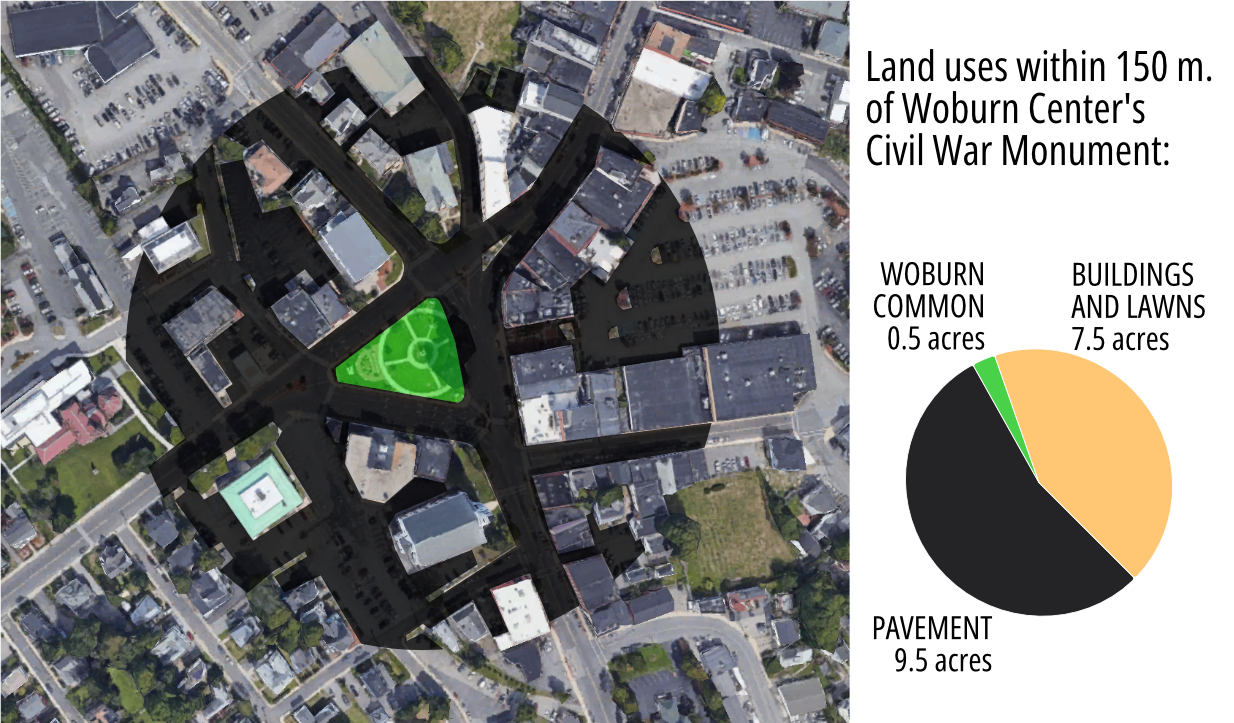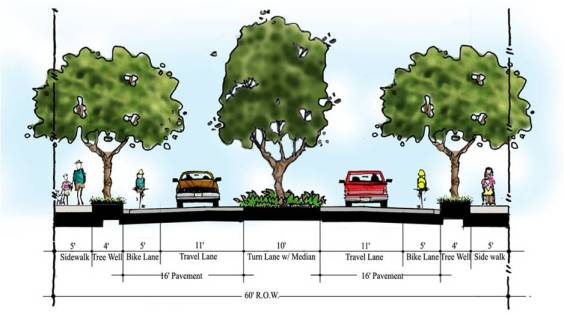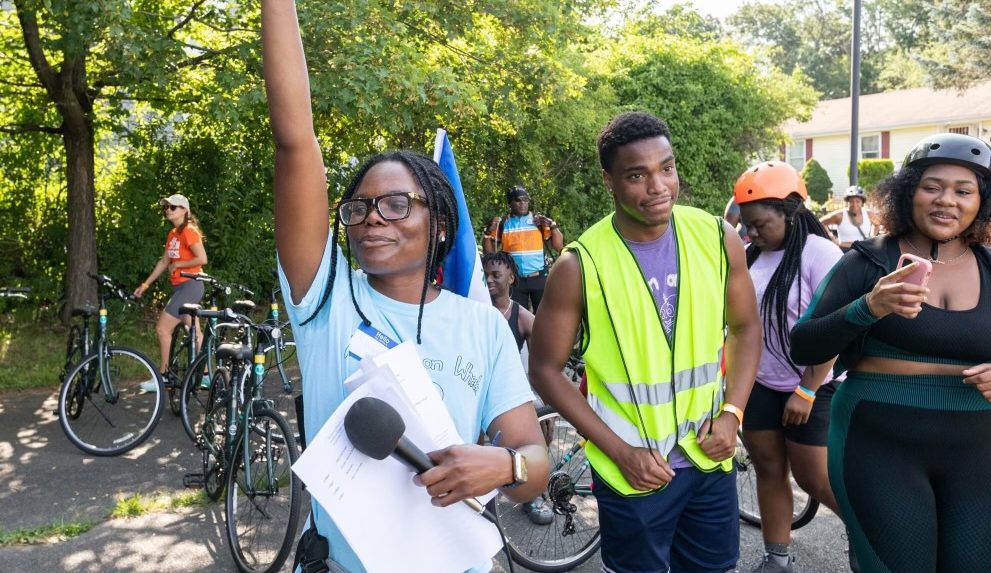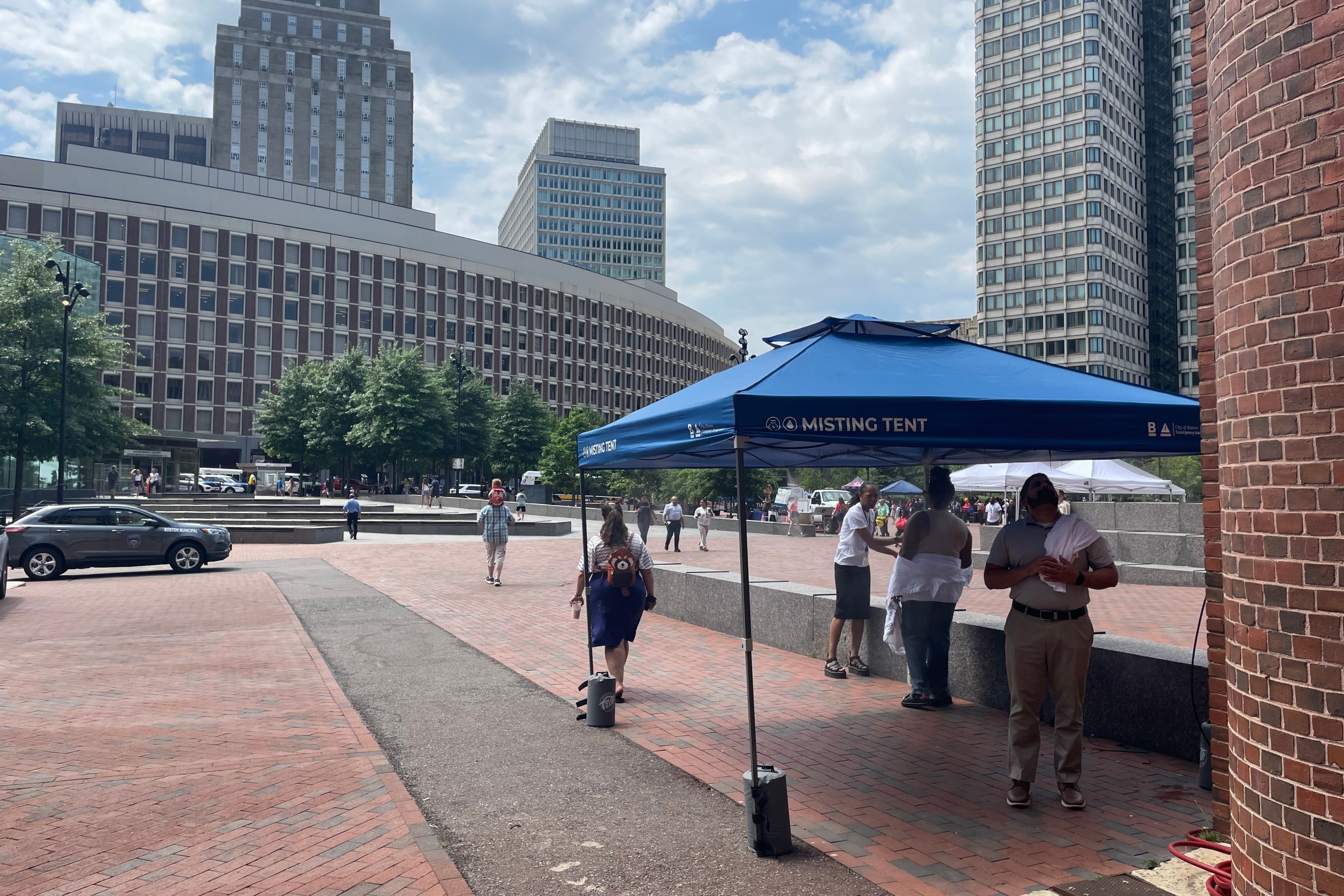The Boston City Council's Committee on Planning, Development and Transportation held a follow-up public hearing on Thursday afternoon to discuss the city's new “healthy streets” initiative, which has been making tactical changes to city streets to provide more room for safe physical distancing for pedestrians, bike riders, small businesses, and bus riders during the COVID-19 pandemic.
The initiative was first announced in late May, and has so far mostly focused on creating new dining areas for local restaurants, plus a network of protected bikeways downtown and along Cummins Highway in Mattapan.
At Thursday's hearing, Boston Transportation Department (BTD) staff announced that the city is now working to make those downtown bike lanes permanent, and also working on a new project that would add protected bike lanes and calm traffic on American Legion Highway in Mattapan.
"For the next few months, we'll be designing the first phase of Connect Downtown, which will be adding separated bike lanes to most of the network before winter, and continuing to work with residents and institutions to design a better pedestrian experience at many of the intersections," announced Stephanie Seskin, the BTD's Active Transportation Director.
Seskin also elaborated on the city's plans for the American Legion Highway: "We'll be working with residents and the Franklin Park Action Plan team to plan and design a calmer and safer American Legion Highway with better access to Franklin Park for everyone. That will include separated bike lanes, new crosswalks, curb ramps, and better signal timing for pedestrians along that 2-mile corridor."
The BTD also provided an update on several of the city's dedicated bus lane projects, which were already in the works before the pandemic began, but have become more urgent as the MBTA struggles to provide adequate physical distancing on buses and at bus stops.
"This fall, we're working on several important projects, including North Washington Street (from Haymarket and Charlestown), the Roslindale outbound bus lane, Columbus Avenue in Jamaica Plain and Roxbury, and additional expanded bus stops," said Matt Moran, a planner on the BTD's transit team.
Moran added that BTD would also re-start community outreach later this fall for planned bus prioritization and protected bikeway projects on Warren Street, Blue Hill Avenue, and Summer St. in the Seaport.
Before today's hearing, advocates had been pressing the city to implement more "Healthy Streets" projects into other neighborhoods beyond downtown Boston.
"While protected bike lanes on downtown streets are long overdue, the corridors laid out in the Healthy Streets plan do not build out the network that is required for people to travel safely throughout the city," wrote the leaders of the Boston Cyclists Union, Livable Streets Alliance, MassBike, and Walk Boston in a June 2020 email to Chris Osgood, Mayor Walsh's Chief of Streets.
At Thursday's hearing, advocates thanked city officials for the work they've done on the downtown bike network and Cummins Highway, but also pressed the city to prioritize more projects that would benefit and connect more neighborhoods.
"We're looking for equity in where (these projects) are placed. While there is this great downtown network, there aren't connections for safe biking in between neighborhoods, especially neighborhoods of color," noted Becca Wolfson, director of the Boston Cyclists Union, during her testimony to the Council.
Several advocates also expressed frustration that even during a pandemic, on-street parking continues to be prioritized on city streets.
"We've asked for sidewalk expansions into parking spots, because there's been increased queuing outside of restaurants... customers and pedestrians are being forced into the street to avoid sidewalk queues and bunching," said Anna Leslie, Director of the Allston Brighton Health Collaborative. "We're asking that the city temporarily change the use of public space from one that stores cars, to one that allows people to safely move."
"This city is addicted to parking," said Jarred Johnson, Chief Operating Officer of TransitMatters, during his testimony. "On many corridors there's not enough room for all the street users, and nearly every time, parking wins, and cyclists, pedestrians, and transit users lose."
